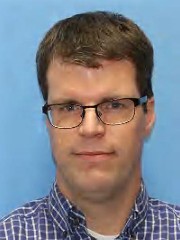Dr. Ryan Bennink 
ORNL
Friday, October 9, 2020
Zoom, 2:30-3:30pm
Abstract:
Quantum mechanics is usually formulated in terms of vectors and operators in a complex Hilbert space. While mathematically elegant, this formulation requires an interpreting principle and involves many concepts that are foreign to classical mechanics. This often makes it difficult to compare quantum and classical descriptions of the same problem and to understand what features are uniquely quantum. But it turns out that quantum mechanics can be formulated entirely in terms of measurable probabilities and how they are affected by physical processes. In this approach, quantum mechanics emerges in a satisfying way from plausible physical and informational principles. This approach also helps elucidate commonalities and differences between quantum and classical mechanics and leads to new insights about “quantumness”. In particular, quantum states and processes can be understood in stochastic terms if some probabilities are allowed to be negative. Negative probability can then be defined as a quantum resource and the total negativity of a state or process can be viewed as a measure of its quantumness. This perspective suggests novel ways of simulating quantum phenomena on classical computers as well as metrics for quantifying the power of noisy quantum computers.
Bio:
Dr. Ryan Bennink leads the Quantum Computational Sciences group at ORNL. For the past decade his research interests have centered on modeling and simulation of quantum computation and developing new quantum computational methods. Prior to that, Dr. Bennink developed state-of-the-art entangled photon sources, authoring a definitive paper on their spatial and spectral properties and writing advanced simulation software that has guided experiments at ORNL and other leading research groups. Dr. Bennink has a Ph.D in optics from the University of Rochester and undergraduate degrees in physics and mathematics. He studied abroad as a Marshall Scholar, was a Sproull Fellow at the University of Rochester, and joined ORNL as a Wigner Fellow. He has authored over 40 papers and conference presentations, won and led numerous research projects, served as institutional lead for large multiagency projects, and provided expertise to government agencies.